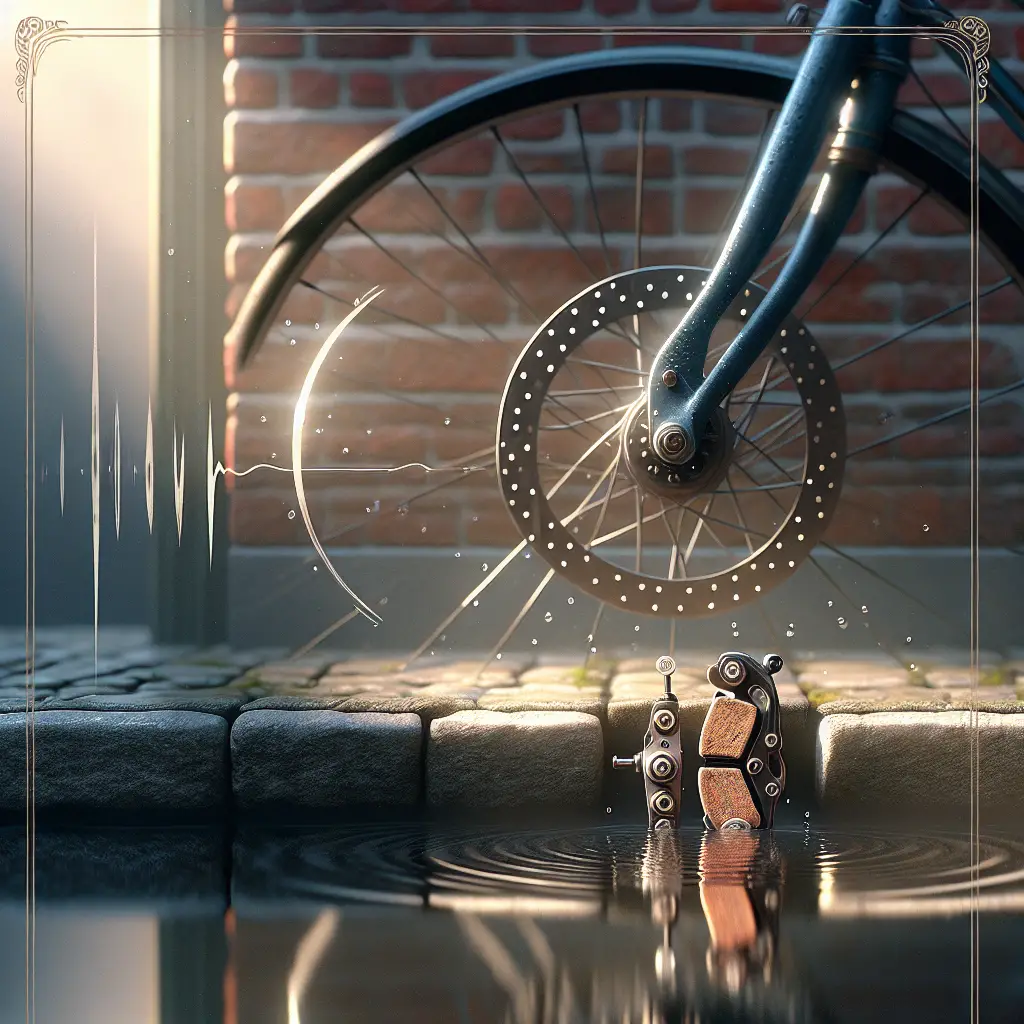Do Brakes Squeak When Wet? Unraveling the Mystery Behind Moisture-Induced Noises
Have you ever parked your car after a rainstorm only to be greeted by a high-pitched squeal the next time you hit the brakes? If you’re nodding along, you’re not alone. In the world of automobiles, few sounds evoke as much concern as the infamous brake squeak. But before you envision a hefty mechanic’s bill, let’s dive into why brakes squeak when wet and what you can do about it.
Understanding Why Wet Brakes Squeak Matters
Disconcerting as it may be, the reasons behind wet brake squeaks are often less sinister than you might expect. Braking systems rely heavily on friction, and when water comes into the equation, it can act as a lubricant, momentarily reducing the friction required for your brakes to function normally. But wait, there’s more to this auditory enigma.
The Science of Squeaking Brakes
The sound emanating from your brakes is not just random noise; it’s actually a form of high-frequency vibration. When the brake pads clamp onto the wet rotors, they can slip and catch rapidly (a phenomenon known as stick-slip motion), leading to the squeaking sound you hear.
To better grasp this concept, imagine running a wet finger around the rim of a glass. The moisture allows your finger to glide effortlessly, but also can produce noise as your finger sticks and slips along the edge. In a similar fashion, this is what occurs with your brake components. Adding to that, rust formation from overnight moisture can also give your brakes that extra crunch when first applied in the morning.
Common Culprits Behind the Squeak
- Brake Pad Composition: Brake pads are made from various materials, ranging from organic to ceramic to metallic compounds. Each type has varying degrees of resistance to water and environmental factors, which can contribute to the squeaking sounds.
-
Brake Dust Buildup: An unavoidable byproduct of the friction between the brake pads and the rotors, brake dust can accumulate and mix with water, creating a paste-like substance that can lead to increased noise.
-
Rotor Surface Rust: Overnight moisture can cause a thin layer of rust to develop on the rotors. This rust can lead to a squealing sound during the first few brake applications, after which it usually subsides as the rust is worn off.
-
Worn-out Components: Worn brake pads or grooved rotors can exacerbate the squeaking caused by wetness, amplifying the need for maintenance.
Investigations From the Experts
Studies conducted by automotive experts, including those from ASE (National Institute for Automotive Service Excellence) and Car and Driver, have confirmed that brake noise is a normal occurrence under certain conditions. The consensus is that the occasional squeak when wet, while annoying, is often not indicative of a fundamental problem with the braking system.
However, consistent or chronic brake noise, wet or not, should be addressed promptly. It could be indicative of an underlying issue that, if left unchecked, could compromise your vehicle’s braking performance or lead to more significant damage.
When to Seek a Professional Opinion
If your brakes consistently squeak, whether after a rainstorm or in dry conditions, it might be time to make an appointment with your local mechanic or dealership. Persistent noises are a call to action to inspect your brake system, ensuring everything from pads to rotors is in optimal condition, thus preventing more severe issues long term.
DIY Measures to Prevent Squeaking Brakes
For those who’d like to take some proactive measures:
- Regular Cleaning: Keep your wheels and brakes as clean as possible to prevent dust and grime buildup, which can reduce squeaking after driving through water.
-
Proper Maintenance: Schedule regular brake inspections and services. Mechanics can rotate your tires, which provides an opportunity to inspect the brakes for any potential issues.
-
High-Quality Brake Pads: Invest in high-quality brake pads with a composition that’s less prone to squeaking, even when wet.
-
Rust-Prevention: If you live in a particularly moist or salt-prone area, consider using anti-rust sprays or frequent washing to mitigate the rust buildup on your rotors.
Conclusion: Context Is Key
While the occasional squeak from wet brakes shouldn’t send you into a panic, it’s essential to consider the context. If the noise persists beyond a few days or is accompanied by other symptoms like a pulsating brake pedal or diminished braking performance, seek professional help. Remember, at the end of the day, your brakes are your car’s most important safety feature.
Setting the right expectations can help you discern between an innocuous noise and one that signals it’s time for a brake service. Keep your ears tuned and your car maintained; that way, the only unexpected noise you’ll hear is your favorite song on the radio on a clear day.
Quick Tips Recap:
- Wet brakes might squeak; it’s often normal.
- Consistent or loud squeaking can be a sign of needed maintenance.
- Keep your brakes clean and book regular check-ups.
- Invest in quality brake pads to minimize noise.
- Pay attention to your car’s behaviors and noises—it knows how to speak, you just have to listen.
By staying informed and proactive about your car’s maintenance, you can ensure that squeaky brakes are nothing more than a brief interlude, not the prelude to a more concerning automotive symphony.

